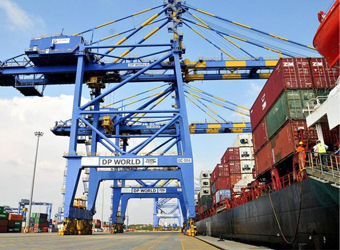Egypt’s exports of building materials increased 7 percent in the first quarter of 2018, recording $1.5 billion, compared to $1.4 billion in the same period of 2016, according to the Export Council for Building Materials (ECBM).
on the other hand, the council said in its monthly report that iron exports increased 4 percent to reach $250 million in the first three months of the current year, compared to $239 million during the mentioned period in the previous year.
Moreover, the report also remarked that Egypt’s exports of wires, pipes and reservoirs jumped 48 percent to $44 million, from $30 million in the compared period.
Copper exports also climbed 76 percent to record $63 million, compared to $36 million in the first quarter of 2017.
Regarding aluminum and Lead exports, they increased 50 percent and 94 percent, respectively, to reach $154 million and $4 million, respectively.
Zinc exports recorded $1 million in Q1 of 2018, up from $364,000 in the same period of 2017, according to the report.
Chairman of ECBM Waleed Gamal El-Din said in March that Egypt’s building materials exports continue to increase, which means that Egypt is becoming a regional hub for the construction sector.
For her part, ECBM Executive Director Hanan Ismail said the council is currently working on boosting exports to Romania, India, China and the United Arab Emirates.
Generally, Egyptian goods became attractive to foreign markets after the floatation of the state’s currency in November 2016, losing 50 percent of its value, which is reflected on the increased exports.
Egypt also benefits from the trade agreement that came in action lately, reflecting on the rising volume of its exports. The state is involved in international trade deals such as the Mercosur Agreement which is a free trade agreement signed by Egypt and Mercosur countries in 2010, including immediate customs clearance for 63 percent of the exports of Brazil, Argentina, Uruguay and Paraguay going to Egypt.
The Mercosur trade deal covers food, cars, auto parts and industrial supplies, and was signed by Egypt and Mercosur members in 2010, but only came into force in 2017.
Another trade agreement that Egypt is attached to is the deal with the Common Market for Eastern and Southern Africa (COMESA) which represents a free trade area with 19 member states, stretching from Libya to Swaziland. COMESA was formed in December 1994, replacing a Preferential Trade Area which had existed since 1981.
In 2017, Building materials’ exports recorded $5.08 billion, and the council is targeting to raise this amount to $5.6 billion in 2018, with a a 10-percent increase.


